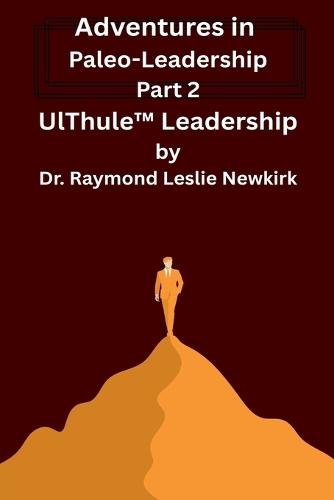Overview
It is long past time to get serious about the future of Leadership. Problems and challenges abound, even where they once seemed solved. The record confirms my suspicions: This year's solution is next year's problem. I remember one pleasant Florida evening back in 1977 discussing the future with Bud Parrish, a close friend, great range manager for the Polaris Submarine Missile Test Range Project, and outstanding executive. We concluded that if the human race could make it through the 1980s without a nuclear nightmare, we would have it made. Life would finally become safe, simple, and more than satisfactory. We certainly were naive - no nuclear nightmare, and the world became a lot more dangerous anyway. While the world becomes more dangerous than ever, business and government leaders remain hard pressed to understand it all. In many cases, experts offer opinions as solutions while failing to remind the public that they simply do not know how to solve many of the world's current crop of problems. For experts and non-experts alike, the complexities of postmodern life are indeed unique. The fundamental problem for us today is that we have very little experience, if any, with solving the types of problems that urgently challenge us. Being a human being is difficult. We are paradoxical creatures - forward living and backward thinking. We talk about the future but know only the past. Today, many talk about the paradigm shift. They argue that at the dawn of the 21st Century, executives require new models of business organization and styles of leadership to offer hope of human progress. While some executives transform their enterprises into learning organizations via new models derived from the systems paradigm, others adopt the organic or biological perspective as the preferred metaphor for describing the human condition. Even the most cursory observer understands that ""something is afoot,"" as Holmes would say. While interested persons encounter a wave of books on the new paradigm in business (about 20 a month), the lack of depth does not satisfy their curiosity in any essential way. The full scope of today's events is hidden behind a veil of commercialism and under- conceptualism. The reader is likely to remain ignorant about the more important points of the current paradigm shift and what it truly means to his or her life. As Phillips once observed, the reader may not be aware that the current discussions over the paradigm shift ""are related to those over system theory, over organicism in biology and psychology, over structuralism and functionalism, and over internal relations in philosophy.""
Full Product Details
Author: Raymond Newkirk Ph D Psy D, PH D ,
Raymond Leslie Newkirk
Publisher: Raymond Newkirk
Imprint: Raymond Newkirk
Volume: 2
Dimensions:
Width: 15.20cm
, Height: 1.40cm
, Length: 22.90cm
Weight: 0.322kg
ISBN: 9798232767877
Pages: 236
Publication Date: 25 October 2025
Audience:
General/trade
,
General
Format: Paperback
Publisher's Status: Active
Availability: Available To Order

We have confirmation that this item is in stock with the supplier. It will be ordered in for you and dispatched immediately.



